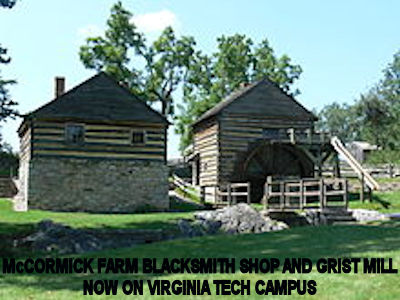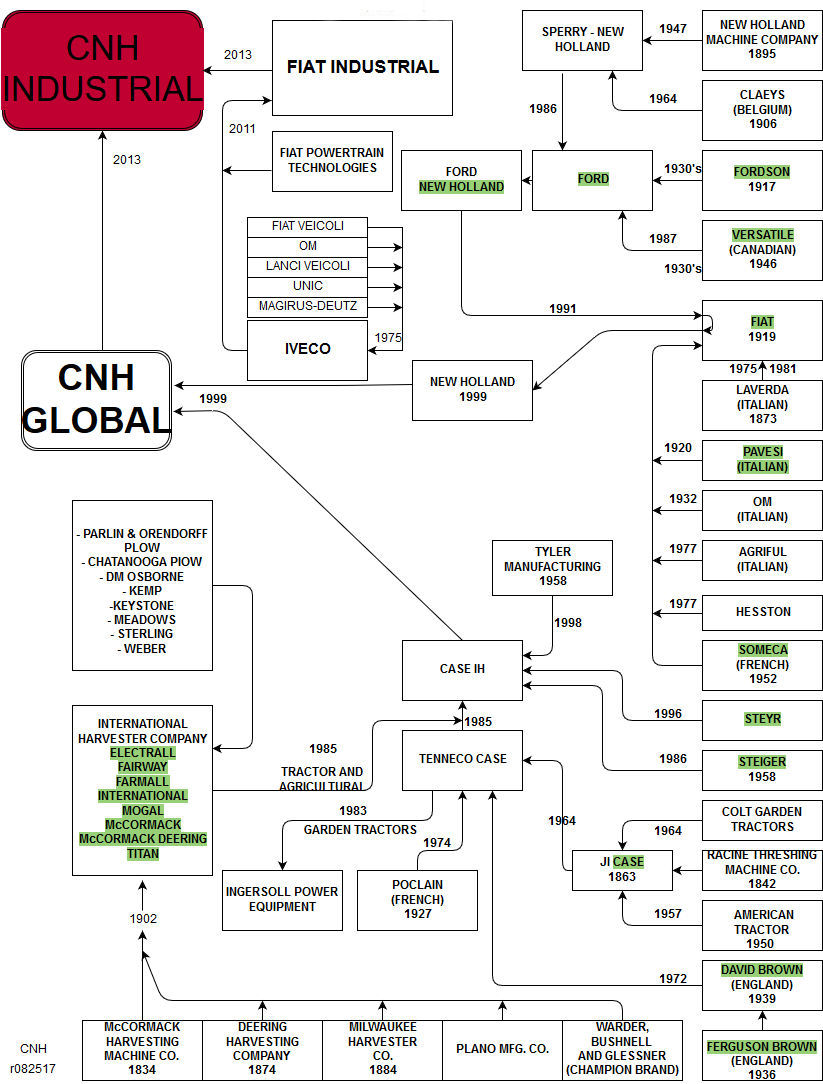| MID MICHIGAN OLD GAS TRACTOR ASSOCIATION |


|
|||
 |
|
 |
|
| FEATURE ARTICLE | LAST UPDATED
FEBRUARY 14, 2019 |
February 14, 2019THE
MAN THE COMPANY Our
Feature Tractor for 2019 has a history that can be traced back to 1834
when Cyrus McCormick was granted a US patent for a mechanical reaper.
The machine was not an overnight success as it was 1840 before he sold the first reaper, then seven in 1842, twenty nine in 1843, and fifty in 1844. All of those machines were hand built in the family farm shop in the Shenadoah Valley of Virginia. In January of 1845 Cyrus received a patent on an improved version of the machine. As orders increased he licensed a factory in Brockway New York to produce the reaper along with some other manufacturers across the country, but manufacturing quality problems plagued the reapers reputation.
So in 1847 McCormick and his brother Leyland opened their own factory in Chicago and by 1856 were producing more than 4,000 reapers a year. The Chicago fire of 1871 destroyed the factory which was rebuilt and reopened in 1873.  Cyrus was an innovator in business and sales techniques and a very successful business man. And he made continual improvements on the reaper. Actively involved in politics he was defeated in a bid for congress in 1864. Also a philanthropist he donated money to Tusculum College and helped fund the start of the YMCA. Suffering a stroke in 1880 he was an invalid until his death in 1884. His son Cyrus Hall McCormick Jr. was the official leader of the McCormick Harvesting Machine Company, but Cyrus McCormick III is credited with running the day to day business. In 1902 the McCormick Harvesting Machine Company merged with Deering Harvesting, Milwaukee Harvester, Plano Manufacturing, and Wardell Bushnell and Glessner to form the International Harvester Company. The company was capitalized at $120 million dollars making it one of the largest corporations not only in the US, but in the world at the time.
By 1910 International Harvester was the largest employer in the Chicago area with over 17,000 employees, had it's own steel mill, manufacturng plants in Sweden, Russia and Germany, and boasted $100 million in annual sales. At it's peak in 1930 IH ranked as the nation's leading manufacturer of trucks and one of the world's dominant suppliers of agricultural equipment with sales offices in the Americas, Europe, Asia and Australia as well as numerous production facilities outside of the US. In the 1940's the company workforce was about 70,000 and many of the workers belonged to either the United Auto Workers or the Farm Equipment Workers. John Deere became the nations leading manufacture of agricultural in the 50's even though International Harvester annual sales exceeded $1 billion. International Harvester produced a variety of agricultural, automotive, home appliance, lawn and garden, and military products under the the name brands of International Harvester, International, Farmall, McCormick, McCormick Deering, Cub Cadet, Mogul, Titan, Fairway, and Electrall and was one of the biggest names in agricultural and truck products for a many years.
The 634 acre McCormick family farm was donated to Virginia Polytechnical Institute in 1954 and 5 acres of that property including the blacksmith shop, gristmill, and house are a National Historic Landmark and open to the public.  By the 70's even though IH still employed 20,000 people in the Chicago area and tens of thousands more around the world they were struggling. The steel plant was sold and in 1979-1980 a 5 month strike by the UAW crippled production output. Additionally the economy at that time was not in robust shape and competition was tough. They were losing huge amounts of money in the 80's and in 1984 IH sold most of it's agricultural products division to Tennico who had already acquired Case and by mid 1985 tractor production at the Farmall works in Rock Island Illinois was stopped. Cub Cadet had been sold to MTD in 1981 and the appliance division had long since been acquired by Whirlpool. International tractors were now Case IH and Navistar International Corporation continued in business as the manufacturer of medium and heavy duty trucks, school buses, and engines for those applications. A pioneer of American industry and agricultural had faded from existence. A detailed timeline of International and Navistar's history is available on Navistar's website. Case IH became part of CNH GLOBAL in 1999 which became CNH INDUSTRIAL in 2013. As shown below many of the world's tractors have been integrated into CNH which is officially a Netherlands company with corporate offices in London 
|